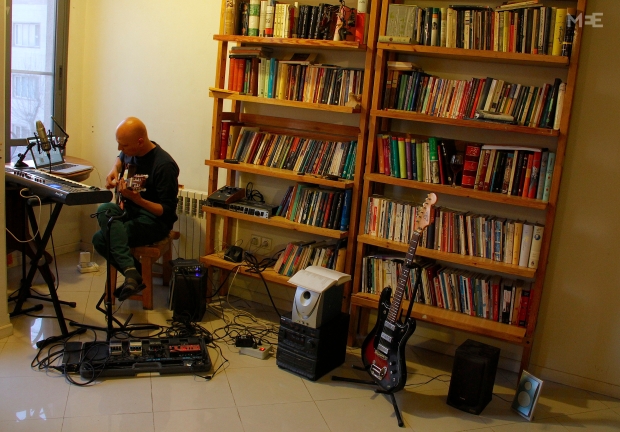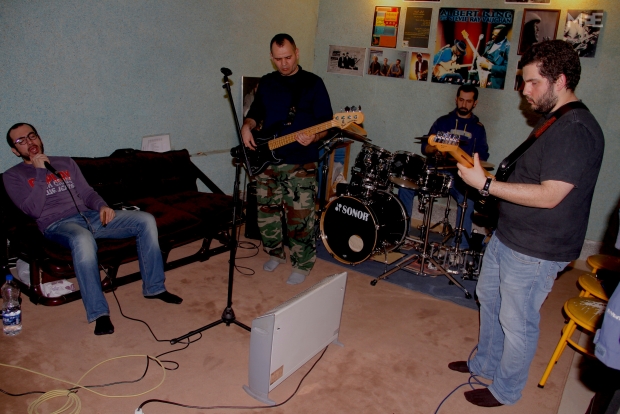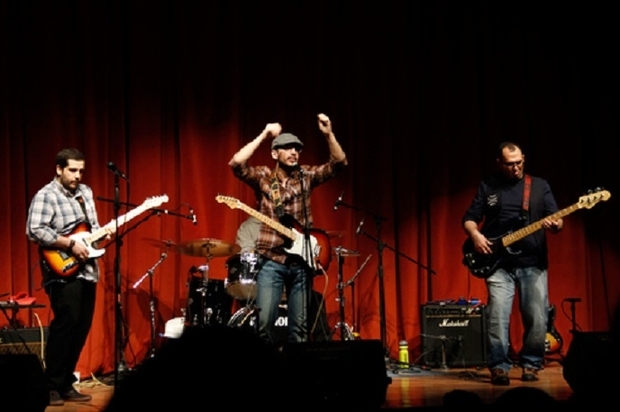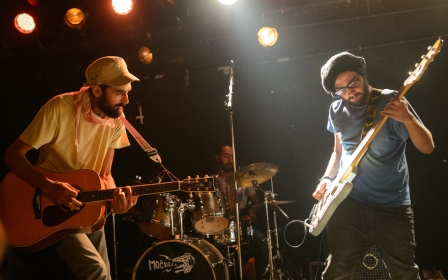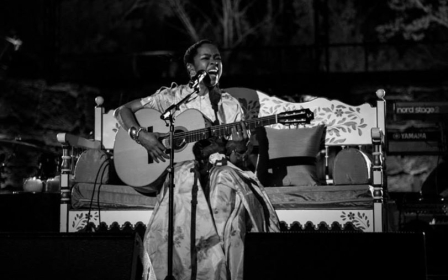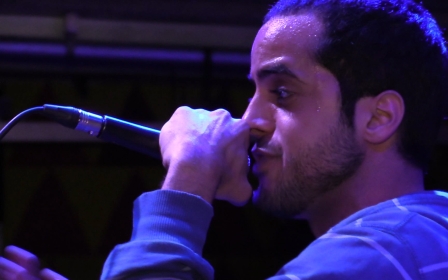Iran rocks: 'Music is like oxygen, you cannot forbid it'
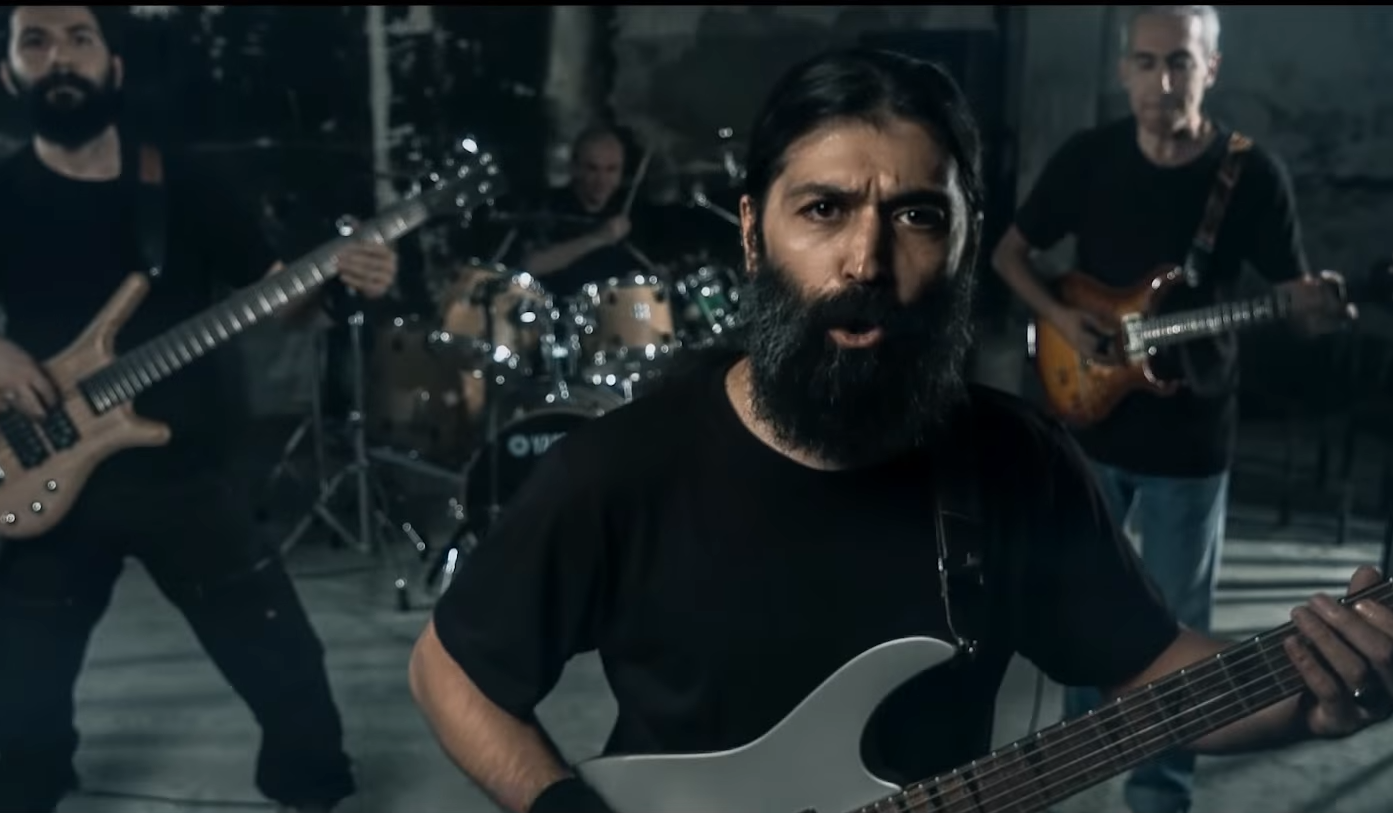
The singer asked the small crowd in the amphitheatre to join him and sing along to an old, slightly incongruous, favourite:
"Come on
Oh baby don’t you want to go
Back to the same old place
Sweet home Chicago"
Sweet Home Chicago, a standard blues song first recorded in 1936 by Robert Johnson, was the last song that Iranian blues band Matchbox performed in Tehran’s tiny amphitheatre housed in the Niavaran cultural centre in January. Matchbox is just one among a number of bands playing Western-style music in Iran.
Since the beginning of the Hassan Rouhani administration in 2013, stories about the Iranian music scene became popular in a Western media looking for symbols of a new more open atmosphere in Iran. They were amazed to discover that female singers go on stage, pop stars with thousands of screaming fans hold concerts, and rock and metal bands play live. However, there is nothing new about this "unofficial" music scene, which has a long history in this country.
Music is not war
Pink Floyd's 9th studio album Wish You Were Here changed Nima Navapour's life. The Iranian drummer first heard the album on a cassette tape in 1977. "Pink Floyd’s music totally astonished me," recalls Navapour, who was 15 at the time. "That day I made up my mind and I decided to become a drummer," he said.
Navapour began his musical career as a singer in his school’s music group and later on started to learn basic drum rhythms and techniques. In 1979, he started drumming classes with a tutor, but this golden age of learning for him did not last long due to the Islamic Revolution and the wide ban on music that soon followed.
"My generation grew up in the worst era for our art. Our access to basic needs of learning music was denied," says Navapour, remembering the days he had to practice drumming on pillows and blankets instead of an actual drum set. "We had to fight for music, and it was not good. Music is not a war, music is about emotion and creativity, it’s about beauty and not the ugliness of war."
This self-taught Iranian drummer kept following his passion and fought for the music he loved over two decades. During those years, he played mainly underground, never getting a chance to publish his works or perform live. Eventually his persistence bore fruit. In 1997, the reformist Mohammad Khatami was elected as Iran’s president and this opened up the cultural space.
One of Navapour’s first live concerts was with a pop band. Officials, however, did not allow the drummer to perform in front of the audience, so instead he played live behind the stage curtains. "Musicians of my generation were like green plants that grew in an infertile garden, without water and sun," explains Navapour.
"Nothing but our frenzied passion for music pushed us forward," he added.
The situation is still difficult for musicians like Navapour. The last time he played live was two years ago when he had a concert with Farshid Aarabi’s metal band. Since then, he has not been permitted to perform live. Yet despite all of the difficulties in obtaining permission to perform, he continues rehearsing with different bands.
Since 1979, the music scene has dramatically changed in Iran. Navapour, who decades ago was striving to find a drumming teacher, is now teaching the instrument at two private music institutes in Tehran. "Sometimes I feel very sad for my generation and the musicians who did not find the proper platform to foster their creativity," he sighs.
"But I am glad from the bottom of heart because I did what I wanted to do. I made my move. I carried the torch and passed it to the others."
Music as oxygen
In post-revolution Iran, cassette tapes of Pink Floyd and Eloy were the answer to the musical curiosity of young music lovers like Pouyan Saadat, a 35-year-old Iranian guitar player and composer. His older cousin passed him those cassettes, and later on a friend's brother gave him the tablatures of Nirvana songs.
"It was not yet the age of the Internet and we were totally dependent on the generation before us," Saadat explains to Middle East Eye in his small home–studio in Tehran.
For this musician, who had lived in a city in northern Iran, it was difficult to find a guitar teacher. However, the situation was different in the capital, Tehran. In 1998, Saadat went to Tehran to study engineering, but his passion for music changed his path. After two years of study, he dropped out of the course.
"I wanted to have an academic education in music, and the only possibility was to study classical guitar at Honar University in Tehran," he recalls.
Honar University of Art established music courses for the first time 16 years after the revolution. In the beginning, the university only had study programmes for traditional Iranian music and military music instruments. It took another seven years before it offered courses on Western instruments such as guitar. "World Instruments" was the official name of the course.
At the university, Saadat met other students who were as passionate as he was about jazz, blues and fusion genres. This allowed him to join the jazz band My Father’s Imaginary Trio. He played bass guitar while the other two members played piano and violin.
"Music is like oxygen, you cannot forbid it," says Saadat. "You cannot put a ban on one genre of music, because the music lovers will eventually find a way to listen, learn and play the music that delights them."
Saadat’s interest in academic education led him to the Netherlands. In 2011, he started a course in classical guitar at the Conservatorium van Amsterdam. There he learnt that "Western academics are highly interested to hear what the Eastern musicians wanna express through the music." Later he left the Netherlands to return to Iran where he found his personal voice and narrative in music.
"Music is a detailed report of our current culture," says Saadat, who now teaches guitar and composes music in Tehran. "Through our music, you find the story of our generation. It is a flow, a narrative and is impossible to eliminate it."
Music as a serious hobby
The rehearsal space for Matchbox is very typical for Iranian bands that play the type of music that officials consider "unconventional". Photos of Albert King, Stevie Ray Vaughan and Freddie King hang on the wall behind the drummer; an electric heater warms up the small room, and in a corner, a white stand fan is used to cool down the band in the summer.
Matchbox has musicians from two different generations. Amir Kamran Mojarrad, 47-year-old bass guitar player, started playing music before the revolution, and the other three band members are in their mid-twenties. Ali Hayati, electric guitar player, and Ali Nourian, drummer, first met in 2005 when they were both engineering students at university.
Behzad Sadighi, singer, harmonica and electric guitar player joined them as well, and they started to play together because they "enjoyed playing the blues".
"We did not think about forming a band, let alone playing a live concert," says Hayati. "We wanted to play the music that we love, and then we thought we can share this enjoyment with other people. It was how it all started."
It has been three years that the band has been holding regular weekly rehearsal sessions. "You cannot make money from this, but we love it," explains Sadighi, sitting on a couch in the rehearsal room with his guitar on his lap. "You might say it is just for fun, but it is very serious for us."
In order to hold live concerts, band members have to go through endless paperwork and endure the complicated process of obtaining permission from both the police and the Ministry of Culture and Islamic Guidance. Usually they are happy with the results. "Now we have fans who come from afar for all of our concerts," says Nourian.
The members of Matchbox consider themselves lucky to have a place to play together, as not all musicians in Tehran have the opportunity. As a result, many musicians never even go on stage. Nevertheless, overcoming the obstacles in gaining permission to play publicly has nothing to do with luck or chance. According to Nourian, "You need to be determined, and never get tired of the No answers."
Despite all of the hassles, the band’s bassist, who has been in the music scene for three decades, is happy with what he is doing. "It is a long time that we are here, playing this kind of music and living it, and there are several other bands like us," says Mojarrad. "These bands have not mushroomed after the nuclear deal. The outsiders think we are a new phenomenon because before the nuclear deal they did not bother to have a look at what was happening in Iran."
Middle East Eye propose une couverture et une analyse indépendantes et incomparables du Moyen-Orient, de l’Afrique du Nord et d’autres régions du monde. Pour en savoir plus sur la reprise de ce contenu et les frais qui s’appliquent, veuillez remplir ce formulaire [en anglais]. Pour en savoir plus sur MEE, cliquez ici [en anglais].


